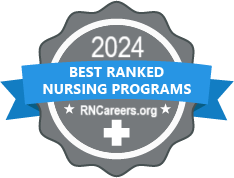Making the decision between becoming a paramedic or pursuing a nursing degree can be challenging. Both careers allow you to provide critical healthcare services, but have key differences in work environments, training requirements, and day-to-day responsibilities.
This guide covers everything you need to know to make an informed choice when comparing these fulfilling medical careers. We’ll outline the paths to become a paramedic or registered nurse (RN), compare salaries and growth projections, and help you determine which aligns best with your skills and aspirations.
Key Highlights
Paramedics and nurses both provide important, often life-saving medical care. Key factors that set these careers apart include:
- Emergency vs Long-Term Care: Paramedics deliver urgent care in uncontrolled environments, while nurses treat patients in healthcare settings over longer periods.
- Training Requirements: Becoming a paramedic has a faster educational path, while nurses must complete bachelor’s or associate’s degrees.
- Work Duties: Paramedics focus on emergency response and transport, nurses have broader patient care planning and interactions.
As we explore in more detail below, choosing between becoming a paramedic or nurse depends largely on your interests in providing urgent emergency interventions versus long-term coordinated care to patients recovering in healthcare settings.

Understanding the Career Basics
Paramedic
Paramedics are emergency medical technicians specially trained to provide urgent care and transport in ambulance and helicopter response units. As first responders, their primary responsibilities include:
- Providing Critical Emergency Care: Paramedics conduct key life-saving interventions like administering IV fluids/medications, performing CPR and defibrillation, managing airways.
- Transporting Patients: They stabilize and safely transport critical patients by ambulance or air to emergency rooms and trauma centers.
- Continuous Training: Paramedic credential requires rigorous vocational paramedic training, then ongoing continuing education.
Nurse
Nurses make up the largest healthcare occupation, providing coordinated care to patients in facilities like hospitals, clinics, and nursing homes. Main nurse types and duties include:
- Licensed Practical Nurses (LPNs): Provide basic medical care like checking vitals, changing bandages, monitoring patients.
- Registered Nurses (RNs): RNs have a wider scope including care coordination, treatment planning, advising doctors.
- Nurse Practitioners (NPs): Can diagnose conditions, prescribe medication with specialized graduate training.
- Varied Work Environments: RNs work on diverse medical teams in settings ranging from the ER, to surgery, to community health.
Learn how to go from Paramedic to Nurse.
Key Differences Between Paramedics and Nurses
When weighing becoming a paramedic or nurse, it’s critical to understand 3 key differences in their typical work settings, training paths, and patient care responsibilities:
Emergency Response vs Long-Term Care Settings
- Paramedics deliver urgent care in uncontrolled, often dangerous environments before transporting patients to hospitals. They respond on scenes, in ambulances, helicopters.
- Nurses work inside healthcare facilities like hospitals, clinics, nursing homes to care for patients through continuing treatment plans over longer periods.
Training and Education
- Paramedics can qualify after 1-2 years of vocational paramedic program training plus certification.
- Nurses complete more extensive training through 2-4 year associate’s and bachelor’s degree nursing programs. Some become nurse practitioners with further graduate-level education.
Patient Care Responsibilities
- As first responders, paramedics perform emergency interventions with a relatively narrow scope focused on stabilizing and transporting patients.
- Nurses develop broader, long-term care plans coordinating doctors, services, medication, and ongoing patient/family advising. Registered nurses also train in specialized care from the ER to surgery.
The environment, urgency, training, and types of care provided differ significantly even though both careers aim to help save and improve patients’ lives.
Critical Career Comparisons
When weighing becoming a paramedic versus pursuing a nursing degree, key factors include required competencies, salary outlooks, and potential specializations.
Skills and Competencies
- As emergency first responders, paramedics must make rapid critical decisions, assess changing conditions, and provide advanced emergency care using skills from IV insertion to defibrillation.
- Registered nurses (RNs) require assessment and care coordination capacities over longer patient interactions. Nurses develop expertise in specialty areas from surgery to pediatrics through added certifications.
Salary and Job Outlook
- The Bureau of Labor Statistics projects strong job growth and demand for both careers. Paramedics can expect a higher than average 7% increase by 2031.
- Registered nurse salaries start higher at $77,600 median pay and have potential to rise further with experience and specialization like becoming a certified nurse anesthetist.
Specializations
- Nurses have extensive options from ER trauma nursing to certified nurse midwifery. Added qualifications expand expertise and career advancement potential.
- Paramedics can pursue specialties like flight medic after getting field experience. All states require paramedic certification/licensure demonstrating core emergency response capabilities.
In determining fit, those wanting to provide urgent interventions in fast-paced and unpredictable terrain may gravitate toward becoming a paramedic, while nurses draw on broader medical knowledge to coordinate long-term care plans.
Choosing a Career Path
If learning more about these careers intrigues you, here are the main steps to start down the path of becoming a paramedic or nurse:
Becoming a Paramedic
The process of becoming a certified paramedic includes:
- Completing a 1-2 year accredited paramedic program including coursework and 1,200+ hours of hands-on training.
- Gaining field experience responding to emergencies under a medical director’s supervision.
- Passing the national registry exam and state/local tests to obtain paramedic licensure.
- Pursuing 2-year associate paramedic science degrees gains additional capabilities.
Becoming an RN or Nurse Practitioner
- Complete a 2-4 year nursing diploma or Associate’s or Bachelor’s degree in nursing and pass the RN license exam.
- Registered nurses can then obtain valuable experience before specializing through added certifications like becoming a nurse anesthetist or nurse midwife.
- Nurse practitioners can diagnose conditions, develop treatment plans, prescribe medications after completing a competitive Master’s degree NP program.
Reaching out to practicing paramedics and nurses is also hugely valuable to clarify day-to-day realities before committing to an educational path. Their insights can prove invaluable when determining which career aligns best with your skills and aspirations.
Making the Decision: Paramedic or Nurse?
Choosing between becoming a paramedic or nurse depends largely on your career interests and personal attributes:
- Those desiring to provide urgent care in fast-paced emergency response environments may thrive as paramedics.
- If drawn toward developing coordinated long-term care plans in controlled healthcare settings, a nursing path may suit you.
It also comes down to lifestyle factors and professional aspirations:
- Paramedics need comfort working independently under pressure during long on-call shifts.
- Nurses require skills managing care teams and building patient/colleague rapport over sustained interactions.
- With added training, nurses can also unlock specialties from nurse anesthetist to clinical care management.
Conclusion
While both provide meaningful medical services, the typical work environments, care duties, training requirements, and advancement potential differ greatly between paramedics and nurses.
Doing thorough research and speaking with professionals in the field will allow you to make a well-informed decision aligning your interests with the realities of these rewarding yet demanding careers.
The fast-paced emergency response life of a paramedic or coordinated long-term care planning role of an RN/nurse practitioner may be right for you. Assessing your passions, lifestyle needs, and career aspirations makes choosing a path much clearer.
Paramedic vs Nurse FAQs
What’s the difference between an EMT, paramedic, and nurse?
- EMTs and paramedics both provide emergency care, but paramedics receive expanded training enabling them to administer IV medications, interpret EKGs, insert breathing tubes.
- Nurses have more advanced assessment and care planning duties including coordinating long-term treatment and rehabilitation plans.
How much does paramedic training cost compared to nursing school?
- Paramedic programs providing 1,200+ training hours range from $4,000-$12,000 depending on public/private status and duration.
- Registered nursing associate’s and bachelor’s degrees average $40,000-$60,000 in total costs according to the American Association of Colleges of Nursing.
Can I work part-time as I become a nurse?
- Many complete initial nursing clinical training or lab elements full-time before transitioning into part-time RN roles. Some programs do enable part-time enrollment.
- Paramedic shifts often involve set 24-hour or 12-hour schedules which can limit flexibility early on.
Which offers the best salary outlook and demand?
- The Bureau of Labor Statistics projects strong 7% job growth for paramedics and 9% for registered nurses by 2031, signaling high demand.
- RN salaries start higher at a $77,600 median pay, with potential to exceed well over $100k in nursing specialties.
What are the pros and cons of becoming a paramedic?
- Pros include providing urgent lifesaving care, constant action, and robust job prospects. Challenges involve high-stress situations, limited patient follow-up, lower salary ceilings.
- As a nurse, higher pay, care coordination opportunities, and specialization options are advantages. Concerns include extended education, patient heavy workloads.
Further Reading and Resources
If you still aren’t sure whether to become a paramedic or nurse, these resources can provide added perspectives:
Paramedic Career Guidance
- What It Takes to Succeed as a Paramedic outlines important considerations if pursuing this emergency response role.
- Paramedic to RN Bridge Programs explain certification options for current paramedics wanting to transition into registered nursing.
Nursing Career Guidance
- Types of Nurses and Their Salaries breaks down the many nursing specializations and earning potential of each.
- How to Become a Registered Nurse covers central steps needed to start down this educational and licensing path.
Speaking directly with paramedics and nurses is also invaluable. Their real-world perspectives can prove incredibly helpful when determining which medical career aligns best with your interests and aspirations.
- About the Author
- Latest Posts
After graduating with a degree in English Literature from UCLA, Jeff published four editions of the World Wide Web Yellow Pages by Barnes and Noble, and several editions of the Best of the Web. He’s worked as an executive at both startup and mature companies including CareerPath.com and Microsoft. With nearly three decades of publishing and business development expertise, he now puts that experience to use operating RNCareers.org to help future nursing students get reliable information on registered nursing careers.








